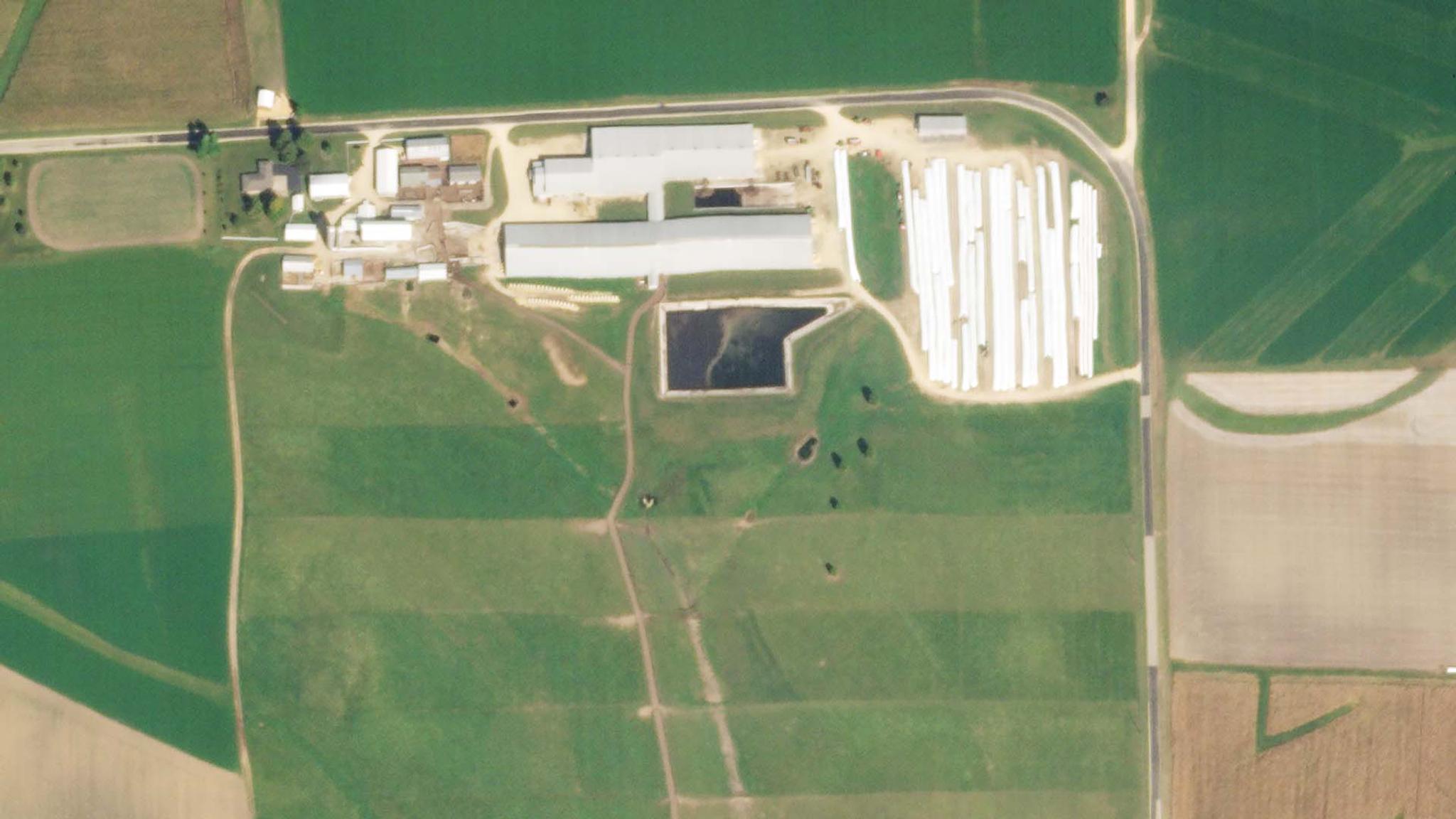Satellites and Cows; Planet and Organic Valley Complete Pilot and Expand Collaboration Across Cooperative

SkySat image of Organic Valley farm in Wisconsin taken September 29, 2021. © 2021, Planet Labs PBC. All Rights Reserved.
NewsDownload our Organic Valley case study here.
We’re happy to announce that we have completed a successful pilot program with Organic Valley, a national organic food brand and independent cooperative of small family farms, to utilize satellite technology to efficiently measure pasture health on dairy farms. By using our near-daily satellite images, farmers accessed reports to improve their pastures and herd nutrition, and to contribute to sustainable agricultural practices like regenerative rotational grazing. The pilot program started with 20 farms and after a successful implementation, Planet’s satellite insights are being extended to about 100 Organic Valley farms this year; after proof of scale, the program will then be offered to their entire membership.
Planet’s relationship with Organic Valley highlights both companies’ shared values in sustainability and social impact. The small, organic family farms of Organic Valley manage more than 175,000 acres of pastureland by using regenerative farming practices, in which cows graze over 180 days in-pasture on average. This leads to enhanced soil and water quality, carbon sequestration, and improved animal well-being. Through intensive rotational grazing, herds are moved frequently between divided pastures. Traditional on-the-ground practices of monitoring the quantity of pasture vegetation have been time-consuming and labor-intensive, but our satellite-enabled datasets now support a more efficient monitoring system, saving time and money for farmers. Organic Valley estimates their farmers will be able to capture at least a 20% increase in pasture utilization through this satellite technology, successfully digitizing and modernizing rotational grazing practices.
“People don’t always realize how using data captured from space could support farming initiatives at any scale. Our relationship with Organic Valley is very compelling, as we work in tandem to build tailored solutions for each unique farm operation. We are also thrilled to see Planet’s offerings used by such a sustainability-minded company,” said Misty Tucker, Planet’s Global Agriculture Industry Principal.
During their pilot program, Organic Valley worked directly with our Professional Services team to develop a comprehensive tool that uses our Data and Orders APIs to select and order farm-level satellite imagery. From these images, Organic Valley generates pasture reports for its farmers that support data, including NDVI metrics, a technique for measuring vegetation presence and health. The pasture reports provide pixel-level detail allowing farmers to identify trouble spots due to cow overgrazing and excessively wet or dry conditions. This innovative use of technology not only saves farmers time but also removes the subjectivity inherent in manual biomass measurements, helping farmers move from estimates to actuals.
“Our goals are to support our farmers, helping them raise happy cows and continuously improve their farm ecosystems, and with Planet’s highly accessible satellite datasets, we have been able to advance these goals. We see this tool as a long-term project that will scale and evolve overtime as we learn about our needs and Planet continues to innovate,” said Organic Valley Senior Sustainability Manager Jessica Luhning.
Forward-looking Statements
Except for the historical information contained herein, the matters set forth in this blog are forward-looking statements within the meaning of the "safe harbor" provisions of the Private Securities Litigation Reform Act of 1995, including, but not limited to, the Company’s ability to capture market opportunity and realize any of the potential benefits from current or future product enhancements, new products, or strategic partnerships and customer collaborations. Forward-looking statements are based on the Company’s management’s beliefs, as well as assumptions made by, and information currently available to them. Because such statements are based on expectations as to future events and results and are not statements of fact, actual results may differ materially from those projected. Factors which may cause actual results to differ materially from current expectations include, but are not limited to the risk factors and other disclosures about the Company and its business included in the Company's periodic reports, proxy statements, and other disclosure materials filed from time to time with the Securities and Exchange Commission (SEC) which are available online at www.sec.gov, and on the Company's website at www.planet.com. All forward-looking statements reflect the Company’s beliefs and assumptions only as of the date such statements are made. The Company undertakes no obligation to update forward-looking statements to reflect future events or circumstances.

Ready to Get Started
Connect with a member of our Sales team. We'll help you find the right products and pricing for your needs

